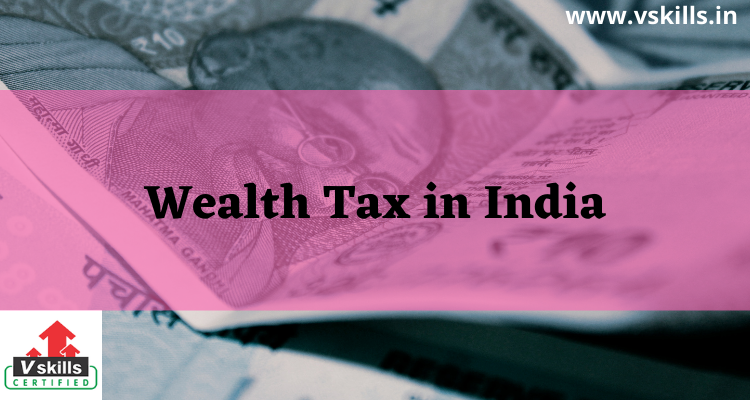It came into existence on 1st April 1957. It is derived from the property owned by the proprietor. The proprietor needs to pay tax every year on property owned by them. The residential property that does not yield any income to its owner is also subjected to it. Wealth tax is termed as most significant direct tax.
As per the act, it is applicable to the following :
- – An individual person
- – A group of people who own a property
- – A company or organization
- – A Hindu undivided family (HUF)
- – Person belonging to 1 -by -6 categories
- – A representative or heir of a dead person
Any person who is resident of India has to pay wealth tax under his/her name. If owner of property is deceased, heir of the property is bound to pay the wealth tax of the property. If a person owns a citizenship of a foreign country and he/she acquires a property in India as well as in foreign country, under those circumstances the property owned by the owner in India is taxable where as property located outside India is exempted from the list. All assets and debts outside India are out of the scope of Wealth Tax Act.
The following assets are subjected to wealth tax:
- Guesthouse, farm-house, commercial complex, shopping mall and residential complex are subjected to the wealth tax
- Valuable items like jewelry and any items made up of precious metals like gold, silver, platinum or any other precious metals
- Aircraft, yachts, boats that is used for non-commercial purpose
- Cash in hand that is more than 50,000, for individual and Hindu undivided families
- Any cash that is not recorded on the account log book is subjected to the wealth tax
- Motor car that is owned by an individual
- Any urban land situated in the jurisdiction where there is a total population of ten thousand as per last census is subjected to the wealth tax
Assets that are exempted from the list of wealth tax are:
– Air craft or boat used for business purpose provided by the company
– Furniture, apparels and electronic items that is for personal use
– Accommodation provided by the company or organization to its employee if the annual salary of the employee is less than Rs. 500,000
– Any land donated for the religious purpose or to charitable trust is not subjected to tax
There are few assets that are termed as deemed assets:
- Assets transferred from one spouse to another
- Assets held by a minor child. As per the income tax act such wealth is taxed individually and will not be termed as the net asset of the main owner/parents/guardian
- Assets transferred to the son’s wife
- Assets transfer to the grandchildren
- Assets transferred to a person or Association of Persons for the benefit of son’s wife.
There are few exceptional assets that are exempted by the government:
- The belongings such as residential building and palace belongs to rulers are considered as national heritage and wealth tax is exempted for it.
- Former Ruler’s jewellery is also excluded from the tax. As per the government it is termed as national asset.
- Assets belonging to the Indian repatriate for 7 years on fulfillment of the conditions prescribed.
The valuation of net asset is considered as total asset other than the cash that is valued on valuation date determined in the manner laid down in Section 7(2) and in Schedule 111 to the Wealth Tax Act.



